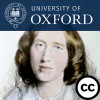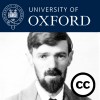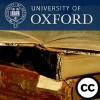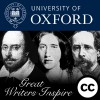
Relevant Links
Catherine Brown BA (Cantab), MSc (Lond), MA (Lond), PhD (Cantab) studied English under J.H. Prynne at Gonville and Caius College, Cambridge, then moved out into academic and practical politics, lived in New York and Moscow, and learned Russian and Spanish, before returning to Caius for her PhD as an English-Russian comparatist. She has taught English literature since 1800 at the universities of Cambridge, Greenwich, and Oxford. She is currently the Head of English and Senior Lecturer in English at New College of the Humanities: https://www.nchlondon.ac.uk/english-faculty/
In 2011 Legenda published her monograph The Art of Comparison: How Novels and Critics Compare. This develops a metacritical argument about the nature of comparative literature, and comparison per se, by comparing how three novels (Daniel Deronda, Anna Karenina, Women in Love) invite and complicate internal comparisons between their two major plots. Her next monograph will concern representations of torture in nineteenth and twentieth century literature, as considered from the points of view of ethics, genre, and reader response. It will explore the two-way interaction between the practice of torture and its representation – for example, ‘the ticking time-bomb scenario’, which is often used in defences of the practice of torture, first appeared in a novel by a former French paratrooper, Jean Lartéguy (The Centurions, 1960). Her main area of specialism is the novel thirty years either side of 1900, and her main authors are D.H. Lawrence and George Eliot (her co-edited book on DH Lawrence and the Arts is forthcoming from EUP in 2020, and her co-edited book on Eliot’s reception in Europe was published by Bloomsbury in 2016).
She also has interests in the British novel of the last thirty years (on which she gives a two-day conference annually at Perm State University in the Urals), twentieth century drama, and Anglophone Nigerian and Caribbean literature. In addition to Russian and Spanish, she knows French and maternal German. Comparativism and cosmopolitanism are ongoing concerns. Her theoretical inclinations are towards narrative theory, genre theory, reader response, Russian formalism, and Czech structuralism. She does not take nation or language as determinative or necessary units of literary interpretation.
| # | Episode Title | Description | People | Date | |
|---|---|---|---|---|---|
| 17 | Creative Commons | Literature and Form 4: What is "Comparative Literature"? | Dr Catherine Brown gives the fourth and final lecture in the Literature and Form lecture series. With a philosophical discussion on what Comparative Literature is and how we can study 'literature in comparison'. | Catherine Brown | 21 May 2012 |
| 16 | Creative Commons | Literature and Form 3: Multiple Plotting | Dr Catherine Brown gives the third lecture in the Literature and Form lecture series. Including the differing ways writers plot their work; from multi-plotted works like Ulysses (Joyce) to double plotted works like Daniel Deronda (George Eliot). | Catherine Brown | 21 May 2012 |
| 15 | Creative Commons | Literature and Form 2: Chapters | Dr. Catherine Brown offers a series of talks introducing different writing forms and their use in great novels: In the second lecture, Brown talks about the ways in which writers choose to break up their works into chapters, parts, and volumes. | Catherine Brown | 21 May 2012 |
| 14 | Creative Commons | Literature and Form 1: Unreliable Narrators | Dr. Catherine Brown offers a series introducing different writing forms and their use in great novels: In the first lecture, Brown discusses the use of the unreliable narrator, particularly in Nabokov's Lolita and McEwan's Atonement. | Catherine Brown | 21 May 2012 |
| 13 | Creative Commons | DH Lawrence 7. Reception History | Catherine Brown gives the Seventh and final lecture in the DH Lawrence series. | Catherine Brown | 19 Mar 2012 |
| 12 | Creative Commons | DH Lawrence 6. Birds, Beasts and Children | Catherine Brown gives the sixth lecture in the DH Lawrence series. | Catherine Brown | 19 Mar 2012 |
| 11 | Creative Commons | DH Lawrence 5. The Alps | Catherine Brown gives the fifth lecture in the DH Lawrence series. | Catherine Brown | 28 Feb 2012 |
| 10 | Creative Commons | DH Lawrence 4. The World at Large | Catherine Brown gives the fourth lecture in the DH Lawrence series. | Catherine Brown | 28 Feb 2012 |
| 9 | Creative Commons | DH Lawrence 3. Christianity | Catherine Brown gives the third lecture in the DH Lawrence series. | Catherine Brown | 28 Feb 2012 |
| 8 | Creative Commons | DH Lawrence 2. Humour | Catherine Brown gives the second lecture in the DH Lawrence series. | Catherine Brown | 15 Feb 2012 |
| 7 | Creative Commons | DH Lawrence 1. Consciousness | Catherine Brown gives her first lecture in the D.H. Lawrence series. | Catherine Brown | 15 Feb 2012 |
| 6 | Creative Commons | George Eliot - A Very Large Brain | Dr Catherine Brown gives a talk on George Eliot and her influences. | Catherine Brown | 07 Feb 2012 |
| 5 | Creative Commons | George Eliot 3. Reception History | In this third and final podcast, Dr Catherine Brown discusses the popularity of George Eliot's work in the Victorian period, which led to her status as a sage and the steady accumulation of her wealth. | Catherine Brown | 05 Dec 2011 |
| 4 | Creative Commons | George Eliot 2. Genre and Justice | The second lecture in the series on George Eliot considers how narrative justice operates in relation to the genres of comedy and tragedy, particularly in 'Adam Bede' and 'Daniel Deronda'. | Catherine Brown | 15 Nov 2011 |
| 3 | Creative Commons | George Eliot 1. Intellect and Consciousness | In this lecture Dr Catherine Brown brings her discussion to focus primarily upon Eliot's atypical novella 'The Lifted Veil' and her novel 'Middlemarch'. | Catherine Brown | 10 Nov 2011 |
| 2 | Realism | Dr Catherine Brown, English Faculty, Oxford, gives a lecture exploring the nature of realism in verbal and visual art. | Catherine Brown | 08 Nov 2011 | |
| 1 | Creative Commons | Walcott and Naipaul: History and Myth | Catherine Brown, Lecturer in English Literature, compares West Indian writers Derek Walcott and Vidiadhar Surajprasad Naipaul on their attitudes towards history and myth. | Catherine Brown | 26 Oct 2011 |





